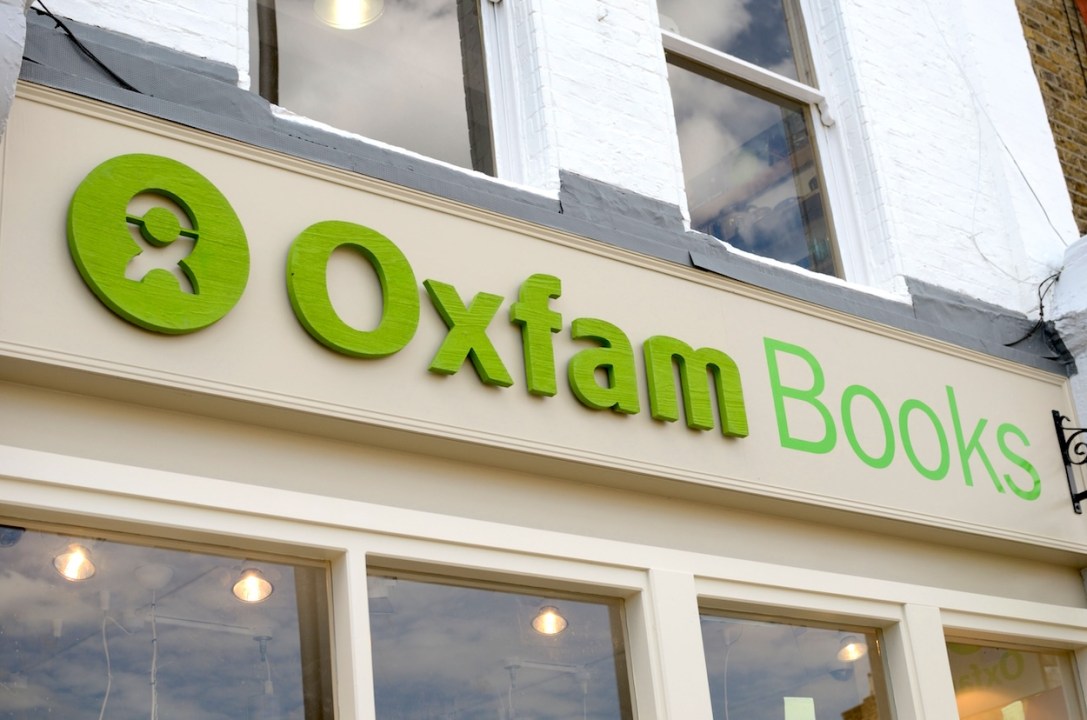My home city of Oxford has been ravaged by shop closures over the past decade but there is still one outstanding second-hand bookshop (the estimable antiquarian department at Blackwell’s apart) and it’s the Oxfam bookshop on St Giles. Thanks to a regular donations from dons and writers, there are invariably high-quality and interesting items on its shelves, priced sensibly and reasonably. In the past, I reckon I’ve spent a decent three-figure sum there most months, which I persuaded myself was going to developing countries and their good work, rather than growing my unreasonably large collection.
Yet I’ve rather fallen out of love with the Oxfam St Giles ever since it did something unexpected a couple of months ago: it stopped me buying books. I noticed that there was a small batch of Nancy Mitford first editions and reprints on the shelves and, a Mitfordian to my core, piled them up and brought them to the desk. The volunteer, a witty and literate man, took one look at them, and me, and said: ‘Sorry, these have been underpriced by one of our staff. You can’t have them.’ When I began to splutter about retail law and prices being binding, the manager – another witty and literate man, as is de rigueur in Oxford – informed me: ‘We’re a charity. We’re not bound by retail law.’
Welcome to the unfair advantage that the Oxfam bookshops have over every other second-hand or antiquarian bookshop in the country. If you’re ever wondering why many medium-sized, even large, towns and cities in Britain don’t have second-hand bookshops any longer, the simple answer is that the Oxfam bookshops have driven them out of business. The margins for profit that the average bookseller had were never great. In order to accommodate the quirks of book-botherers like myself, they would have to spend rent on premises that would then have to be lit and heated, put out cash on buying stock and, on occasion, employ extra members of staff if they ever wanted a day or two off. Yet when they have competition that not only receives their stock for free and has volunteers queuing up to work gratis in their shops, but is also able to offset their limited expenses against their charitable status, the game is very much up.
I wouldn’t especially mind this if every Oxfam bookshop was of the calibre of the Oxfam St Giles. Unfortunately, none of the others are. They are too brightly lit, are uniformly overpriced and employ staff who are less bibliophiles and more jobsworths, ever ready to grumble and complain if you dare to ask to be shown the (inevitably expensive) books lurking in the locked cabinet behind the till. Bargains are few; every title that looks even vaguely old or valuable is looked up on AbeBooks or eBay, and then priced accordingly. You are implicitly told that you are doing good if you shell out £20 on a nondescript Folio Society edition or a dustjacketless Graham Greene first from the 1960s.
Is there anything that can be done? Short of a James Daunt figure coming in and revolutionising the whole group – which is deeply unlikely – I suspect that the Oxfam takes the attitude that if it isn’t broken, there is nothing to fix. Which is a small tragedy for anyone who not only loves books, but loves buying them, too. Oxfam has had its fair share of controversy in recent years, which it has weathered with its usual complacency. Perhaps it’s time that bibliophiles recognised that something is wrong in the second-hand book market and did something about it.








Comments